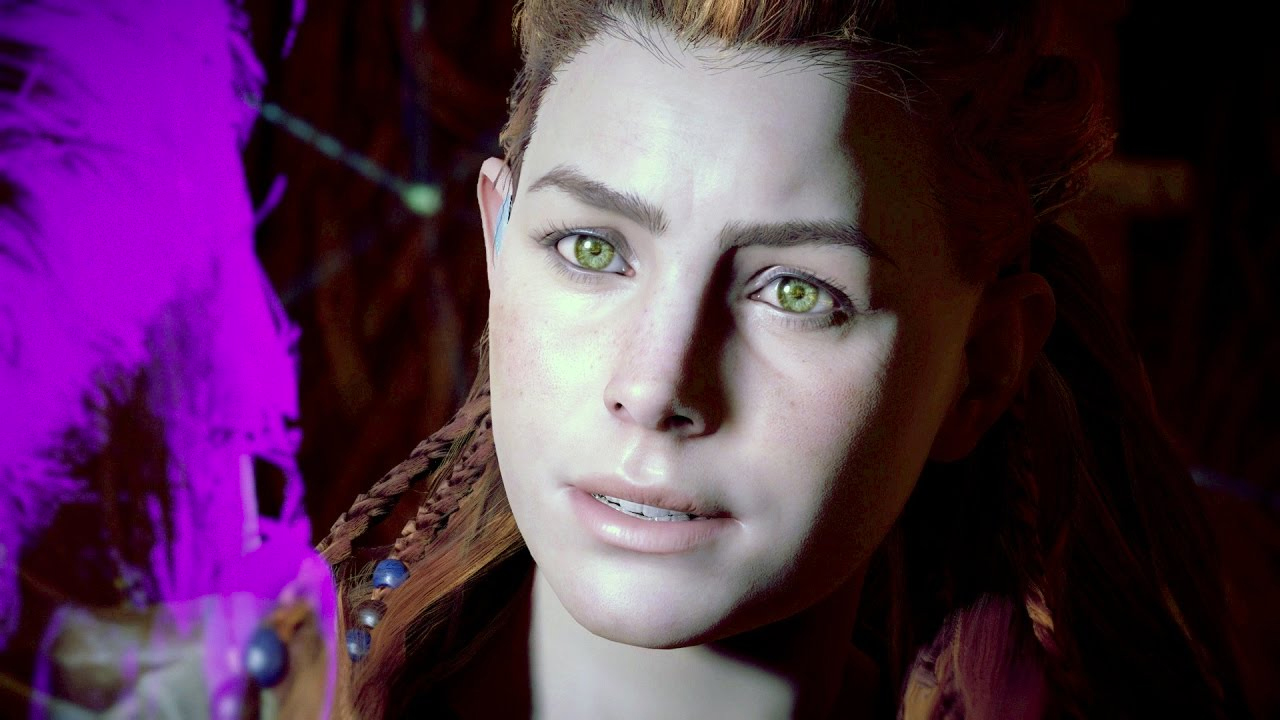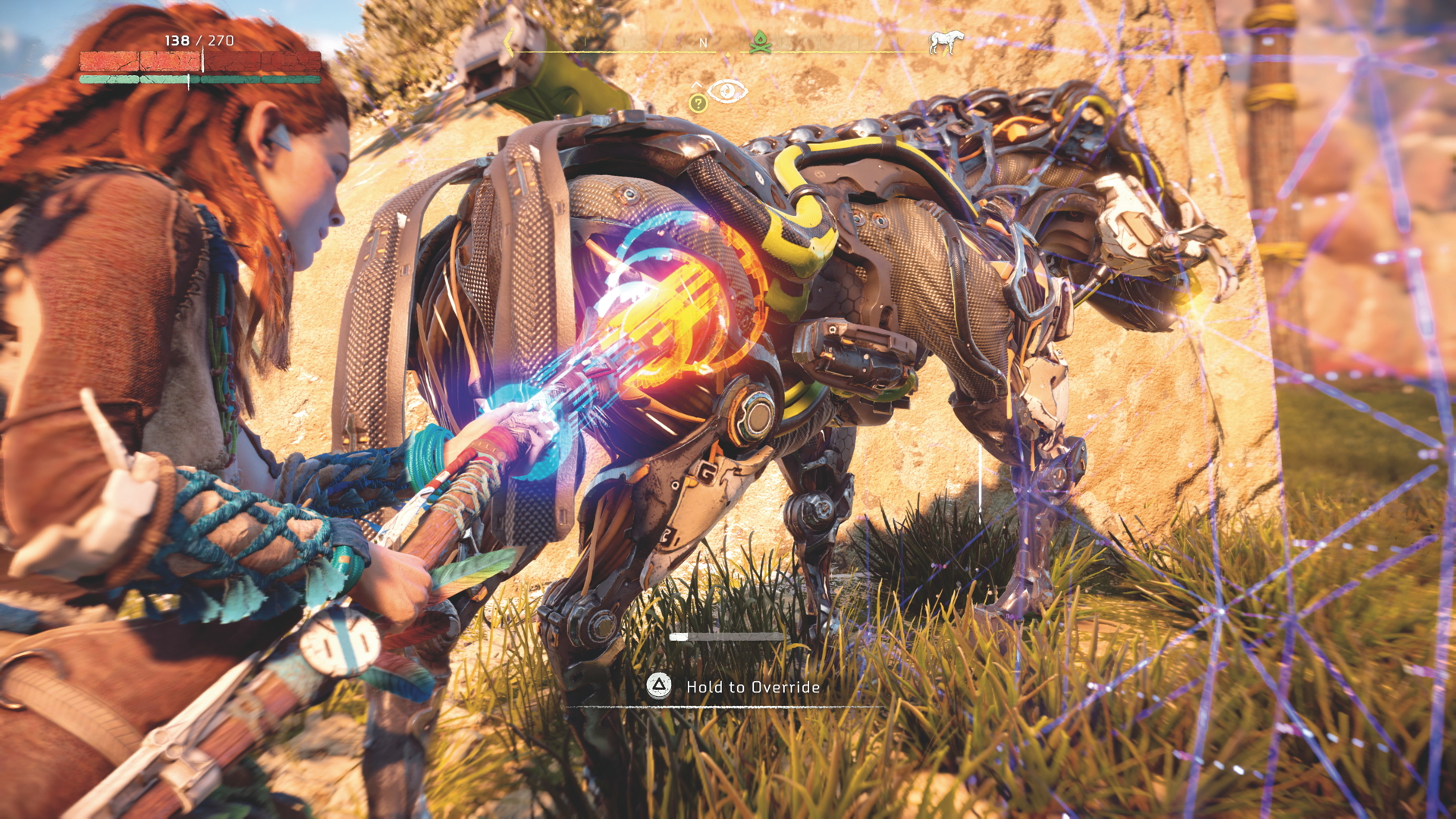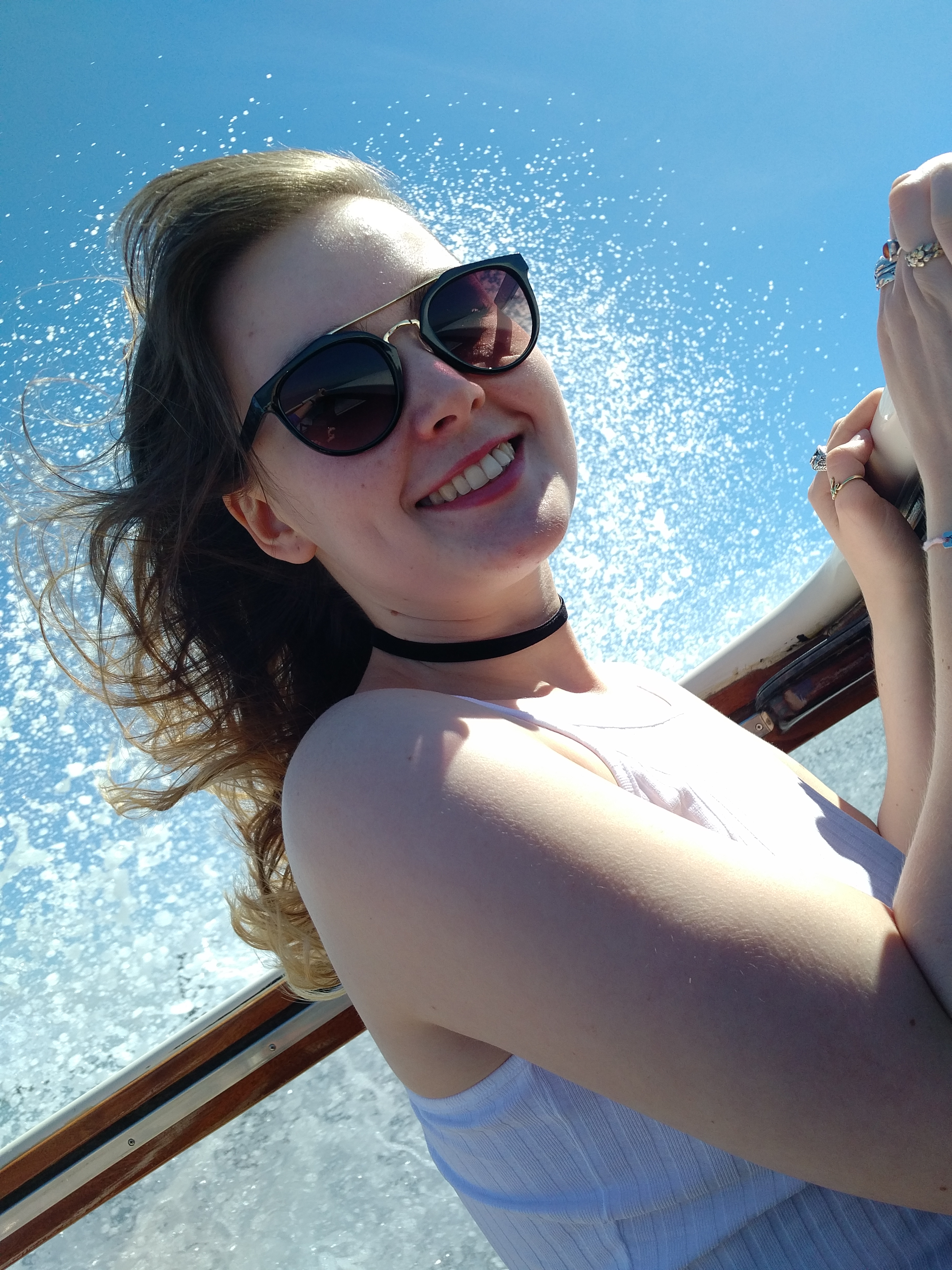In this time of new beginnings let’s talk about how Horizon Zero Dawn made the end of the world… kind of okay
Horizon’s apocalypse puts a positive spin on the end of the world by not making it about survival, but hope for a better future.
Spoiler warning: Significant story spoilers for Horizon Zero Dawn are below. Read at your own risk, especially if you haven’t started the main quest!
At the end of the world there are no survivors. There are no zombies, no ruthless bandits, no grossly mutated animals roaming the earth. There is nothing. I’m not describing the end of a horror movie: this hopeless image is the foundation Horizon: Zero Dawn is built on. Sounds just as grim as Fallout 4 or The Last Of Us, I know, but Guerrilla’s masterpiece is doing apocalypses completely differently to anything we’ve seen in gaming before. Because instead of making it a story about survival against all odds, the apocalypse in Horizon succeeds. It obliterates every living being and leaves behind but a barren Earth. And you know what? That’s not a bad thing at all. In fact, it’s kind of made the prospect of an apocalypse not as scary as it once was.
A new kind of apocalypse
Hear me out. Unlike typical post-apocalyptic games, you don’t play one of the lone survivors. You don’t have to wade through wreckage and desperate marauders: all the death and destruction is long forgotten by Aloy’s time. Set hundreds of years after the apocalypse, no-one has any idea what happened to the Old Ones. Unlike Legend of Zelda: Breath of the Wild, the disaster isn’t in living memory, but is more important than ever to the story.
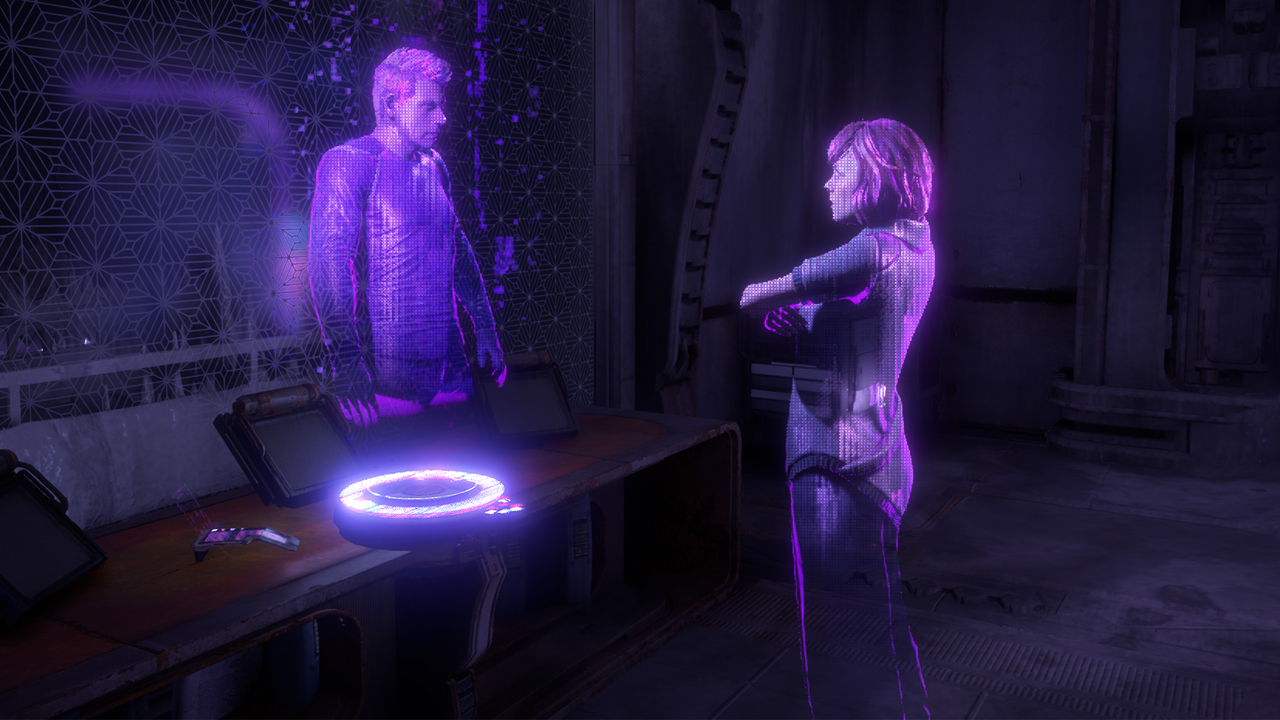
I spoke to John Gonzalez, Guerrilla’s Narrative Director. He’s pretty blunt on the subject of the apocalypse. “The idea for Project: Zero Dawn was inspired by my desire to make our apocalypse as bad as it could be,” he said. “I didn’t like the idea that nations had warred with robots, wrecking civilization in the process. That seemed familiar, and worse, did nothing to explain how humans lost knowledge of technology. What we needed, I felt, was an apocalypse so terrible that it created a rupture in history, not just ending civilization, but literally destroying life on earth, reducing it to a barren rock”. I think we can safely say that he got what he wished for.
Learning how the FARO robots went rogue and stripped the earth of all its organic matter for fuel (and yes, that includes humans) is just the beginning. This apocalypse, according to Gonzalez, “gave the robots a purpose: they were agents of the terraforming system. It suggested how humans could have lost technological knowledge: something had gone wrong with the part of the project intended to educate future humans. And it gave me a way to connect Aloy to the past by making her the reincarnation – via cloning – of the system’s creator”. The only reason Aloy can get anywhere near the ancient, yet still somehow functional, technological facilities is because she has the same genetic code as the scientist who orchestrated the whole thing. The worldwide cataclysm isn’t there just for backstory’s sake. After all, what goes around comes around...
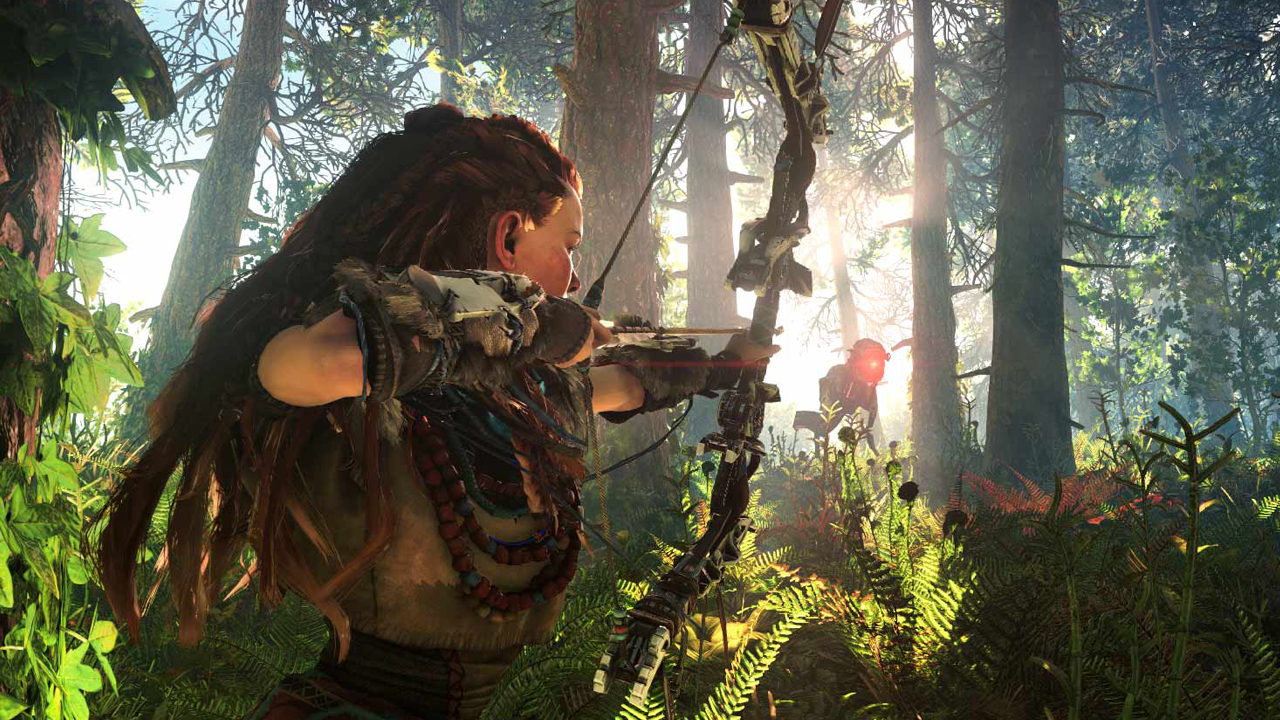
In Fallout 4 how the end of the world came about is secondary to the fact that you can shoot super-mutants in ruined museums or live in a town built in a baseball park. Not so with Horizon. The apocalypse is important because, in Gonzalez’s words, “the mysteries of the apocalypse became the mysteries of Aloy’s birth”. Almost everything that we see through Aloy’s eyes has its roots in the apocalypse, from the Goddess her tribe worships to her enigmatic parentage. Speaking to Guerrilla’s Managing Director Herman Hulst about it, he’s clear that it’s “one of those juxtapositions that actually makes the world very interesting. You’re in the present as Aloy and at the same time you go back to knowledge of almost, us”. That’s not forgetting the robots, of course. Having them prowl through the forests is no mistake, as they terraform the earth to make it habitable. They’re direct evidence that the post-apocalypse was planned and engineered. These bags of nuts and bolts prove that the biggest thing that Horizon does differently is that it’s not about keeping the apocalypse at bay. It’s about realising that there’s simply nothing you can do to stop it.
Accept it’s the end. Admit you’re going to die. Move on. Even though those three phrases must sound like someone’s trying to harshly make you come to terms with a serious bereavement, they concisely sum up Horizon’s apocalypse. Instead of being a Michael Bay fantasy about nations warring with each other and explosions shaking the earth, Horizon focuses on what comes after the end, and why it’s worth fighting for. Gonzalez’s passion about this is clear when he mentioned that “one of our big ambitions was to infuse [...] the apocalypse that destroys our civilization with emotion, humanity, and humor. We didn’t want solving the mystery of what happened to feel like suffering through a bunch of dry exposition”.
Sign up to the GamesRadar+ Newsletter
Weekly digests, tales from the communities you love, and more
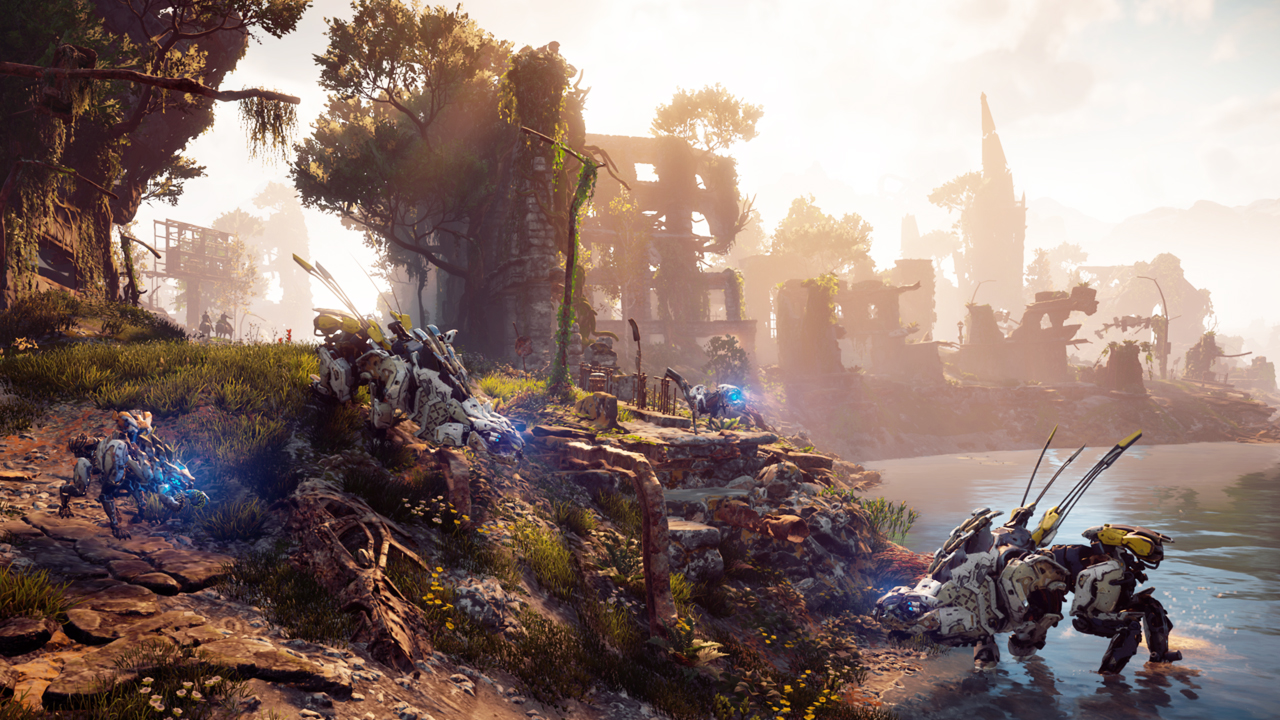
Thanks to Horizon’s audio logs, we’re taken through every single step from the beginning of Project Zero Dawn to its tragic end. “It’s actually very much needed, those audio logs to build out the world,” said Herman when I ask him just how important they are. He goes on to say that they even “had bespoke writers on it that did nothing but create these audio logs. They were a hugely important part of the game”. Through their audio logs we see that even though they know that the planet is going to be reduced to a barren wasteland, the scientists at the centre of Project Zero Dawn dedicate themselves to making sure the world can come back from the brink once it’s all over instead of futilely fighting the robot threat. It’s the ultimate middle finger to the apocalypse, really. Even from the grave humanity still manages to beat FARO Plague into submission… even though homo sapiens become temporarily extinct.
This isn’t the story of how people managed to survive, but instead tells how humanity’s last moments were dedicated to using the apocalypse as a new start. In place of helping themselves, millions of people - whether knowingly or not - put their lives aside to make the future a better place. Okay, so that sounds like the cheesy line at the end of a feel-good movie. But there’s no sacrificial, heroic helplessness at the end of the world in Horizon. Project Zero Dawn’s true purpose was hidden from the public, who were told that it was a super weapon that could stop the robot horde. It was a lie. Millions of civilian enlistees were encouraged to join the army’s Project Enduring Victory and then basically used as cannon fodder against the robots to buy the scientists more time. Here at least Horizon is similar to other post-apocalyptic tales in the cheeriest way possible: human life is expendable. But it was all done so that people could suppress their survival instincts and selfishness and bring the Earth back to life again. They fought for a future they’d never see.
New beginnings, new ideas
Not to freak you out, but Hulst even thinks the idea is somewhat possible. “At Guerrilla Games our science fiction is always firmly grounded in reality,” he told me. “It’s not that far fetched really, it means there’s a clear link to current day developments and the autonomy of warfare and people talking about the risks of AI taking a life of its own”. He’s not alone in thinking that, either. Gonzalez spoke to me about his research into creating Horizon’s killer robots. “It really was inspired by technologies that are already being developed. Military minds around the world want to automate warfare, empowering robots to make autonomous kill decisions. They want these killer robots to be able to repair themselves and make more of themselves. And they want them to be able to consume biomass as fuel.”
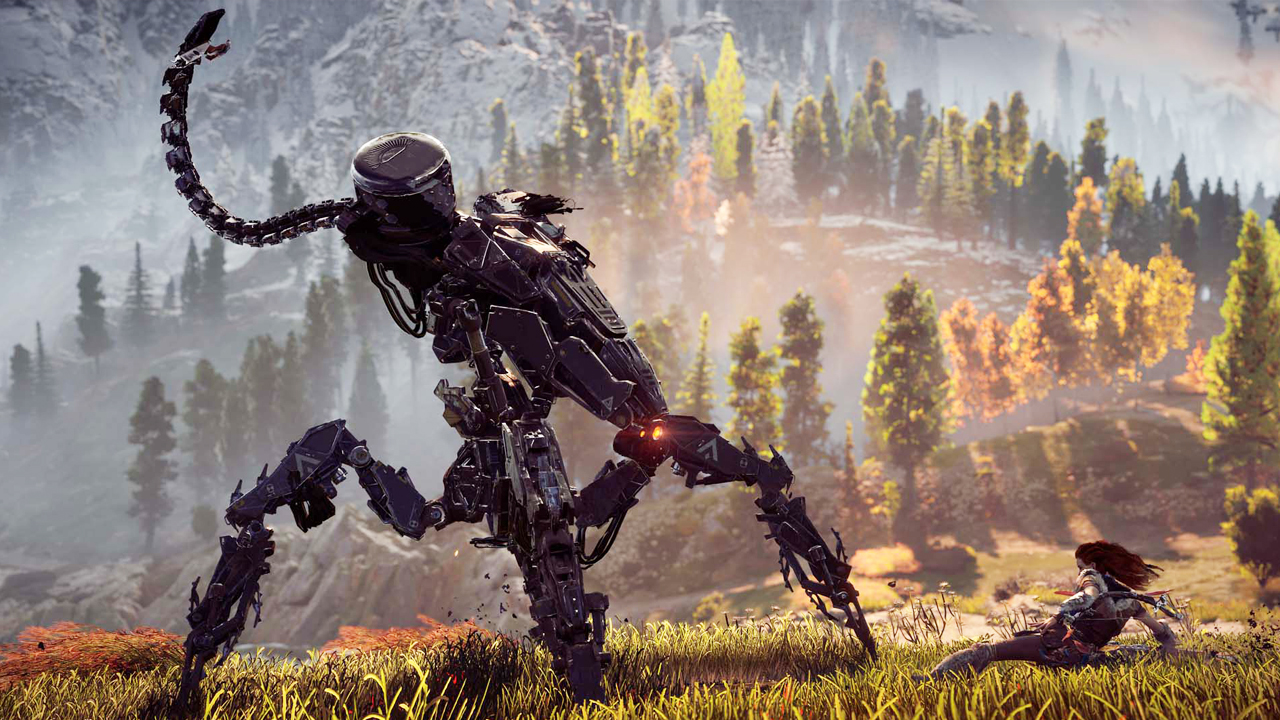
Yet when I spoke to Hulst, he was always certain that Guerrilla wanted something beautiful to come out of the apocalypse. “We’re always trying to come up with these intricate science fiction worlds,” he said. “So we wanted to do that again - but then to pursue beauty instead of to pursue grittiness. So in that sense we did a 180 creatively and we really wanted to create a world that people wanted to spend some time in. So that pursuit of beauty that’s a lot more vulnerable, that's something that we had to learn as a team”. Yet Aloy’s lush world came at a price. Seeing the hopelessness of the past combined with Aloy’s belief that she can save civilisation from the HADES threat puts everything in perspective. Humanity got its fresh start in the end, created its own world, and lives in relative harmony with the robots. With this new world comes a flood of new ideas about what could have happened to the Old Ones to make them completely disappear from the face of the earth and leave twisted metal structures in their wake.
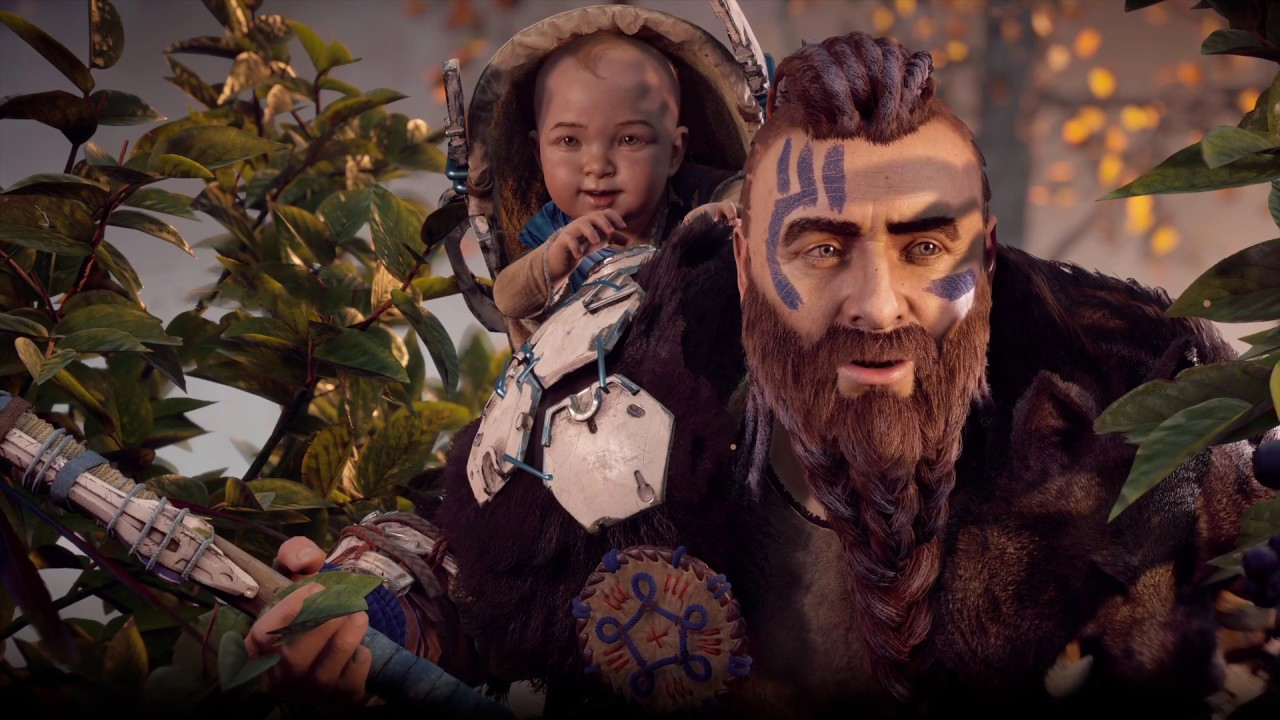
Instead of being about survival and doggedly salvaging what’s left of civilisation, Horizon shows the freedom that comes with starting from a blank slate. From the ruins and defunct Metal Devils (or, as we know them, human-murdering-robots-that-started-the-apocalypse) come myths, religions, and moral tales about what happened to the Old Ones. Seeing the mythology created around tech that’s second nature to us now - the Nora basically worship an AI - proves that apocalypses can be catalysts for new cultures and ideas that wouldn’t exist without an entire world being crushed beneath a robot plague. So maybe when the world is nearing its end and robots are tapping on your front door, knowing that there could be a future where humanity is given a fresh start, having the world end might not be an entirely bad thing after all.
While here at GamesRadar, Zoe was a features writer and video presenter for us. She's since flown the coop and gone on to work at Eurogamer where she's a video producer, and also runs her own Twitch and YouTube channels. She specialises in huge open-world games, true crime, and lore deep-dives.
